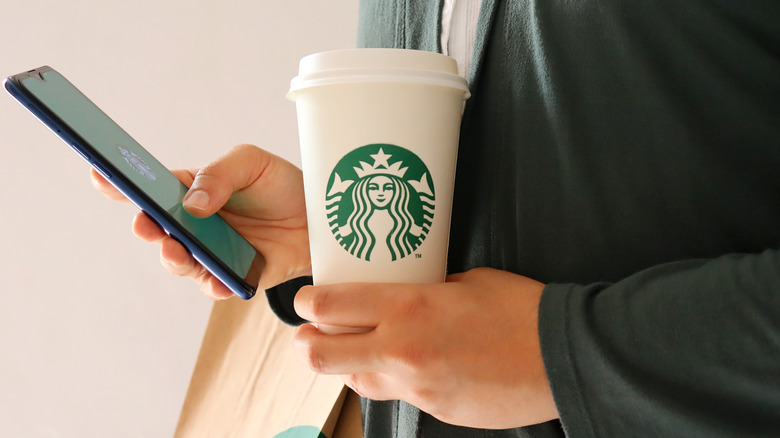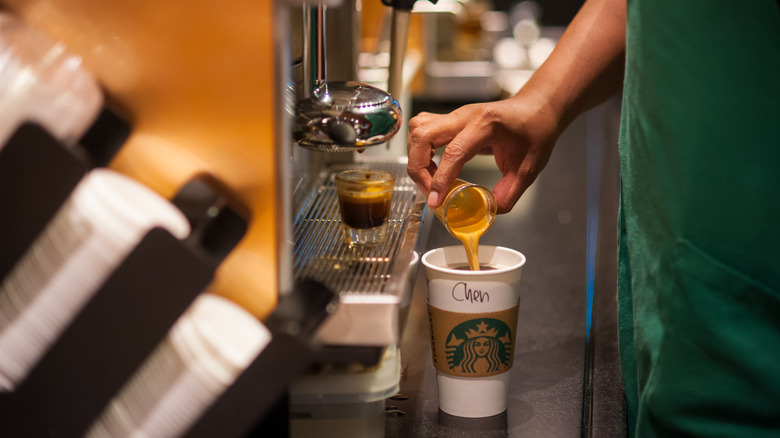Here's How Starbucks Customers Really Feel About Employees' Union Efforts
For the last few months, news coverage of Starbucks has been dominated by the various attempts individual cafes have made to unionize. In recent weeks, Starbucks has publicly voiced what its individual attempts have made clear: they don't like unions. Or, as they put it, "We do not believe unions are necessary at Starbucks because we know that the real issues are solved through our direct partnership with one another."
However, a survey published by the labor group More Perfect Union suggests that the public deems unions necessary for a more equal partnership between Starbucks and its workers. Specifically, 67% believed this while 69% supported the ongoing union efforts. Perhaps the most striking find is that the people most favorable of the brand were also those most in favor of unionizing. On the other hand, 47% thought such efforts were creating a discord that would negatively affect the business.
The poll results were published one day after the National Labor Relations Board ruled against Starbucks' argument that multiple stores must vote as a region for a union, as opposed to individual stores for themselves. While the company maintains that they are respecting their workers' right to vote on the decision, such moves have come under fire as part of their union-busting strategy.
Another cafe votes for a union
In the few days since the survey, another Starbucks outlet has voted in favor of forming a union. With a vote of 25-to-3, the Starbucks workers in Mesa, Arizona have become the third to hold a successful union vote, and the first outside of New York state. Another 100 have filed petitions to hold similar votes.
The vote was held after the aforementioned ruling against Starbucks' argument for regional voting, which has been the same argument that they have used against almost every attempt to unionize. It's seen as an attempt to stall while they dampen attitudes towards unions, either by concentrated messaging, the presence of higher-ups, or hiring people so that the voting pool would more reliably vote against unionization.
However, as Jefferies analyst Andy Barish explained, the higher wages and expanded benefits that a union would want should not pose the biggest issue to Starbucks. Rather, Starbucks would suffer more from bungling their response to a union.

